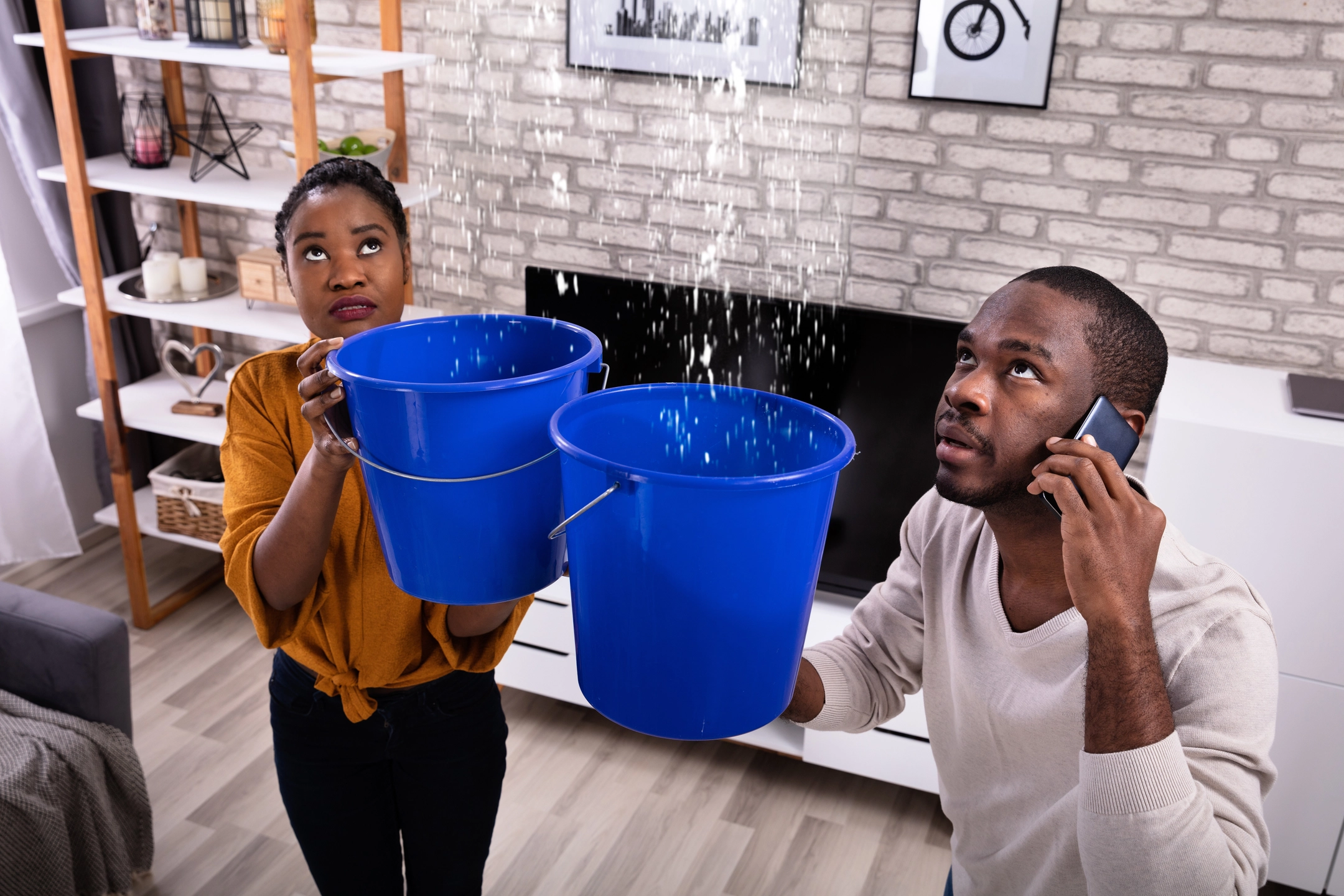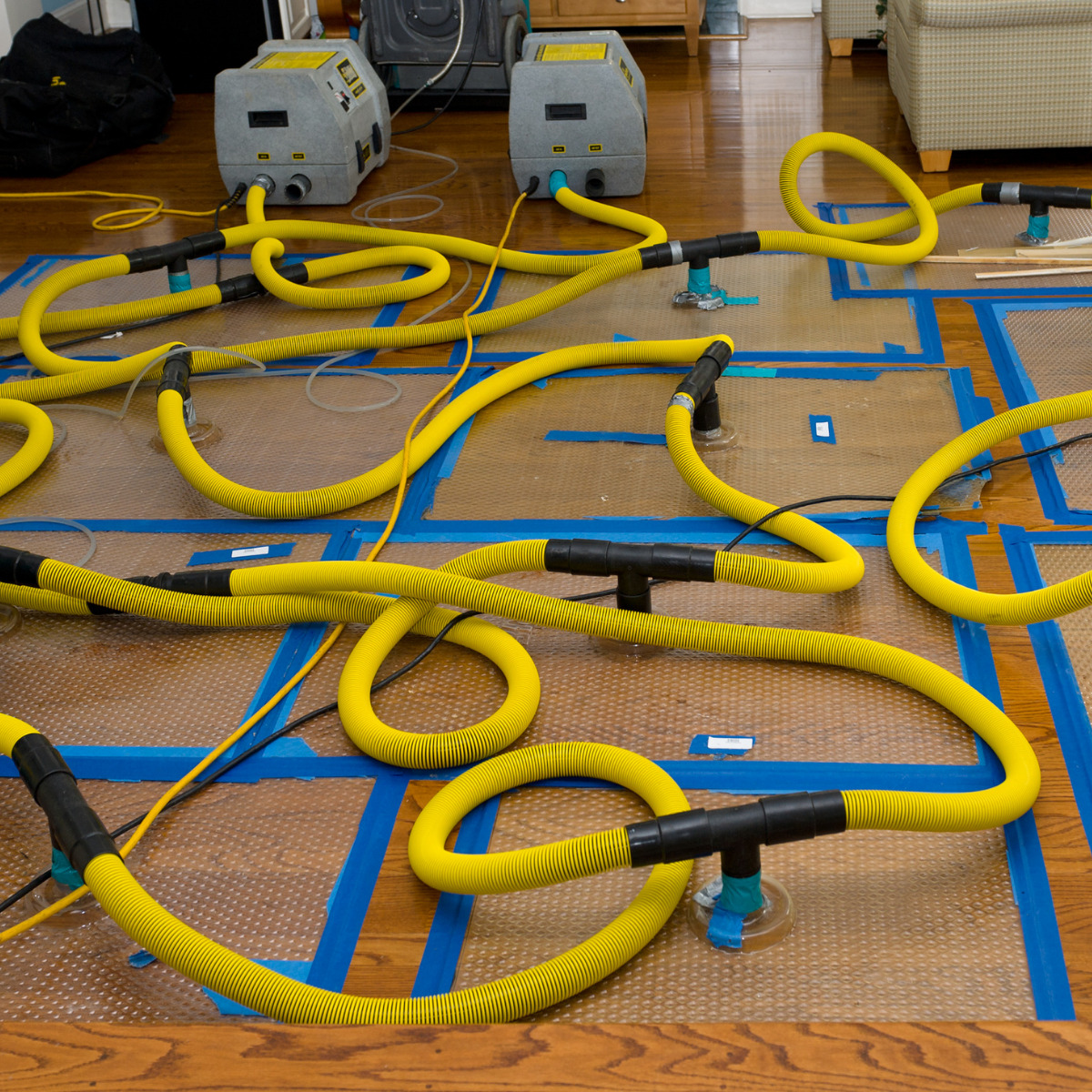Necessary Actions to Adhere To for Efficient Water Damage Remediation in your house
When encountered with water damage in your home, knowing the important steps for reliable repair can make all the distinction. You need to analyze the damage and warranty safety prior to tackling the trouble. Quiting the resource of water is vital, but it's just the start. When you have actually handled that, there's a collection of actions you must require to protect your residential or commercial property from further problems. Allow's discover what you ought to do next.
Examine the Damages
When you find water damages in your home, the very first action is to evaluate the damages thoroughly. Begin by recognizing the source of the water invasion. Look for leaks, ruptured pipelines, or various other issues creating the problem. Next off, examine the affected areas for noticeable signs of damage, including warping, mold, or discoloration development. Do not fail to remember to search in surprise places like behind wall surfaces or under floor covering, as water can permeate into these areas unnoticed.Document the damage by taking clear images and notes. When discussing the circumstance with your insurance coverage provider or restoration professionals, this will assist you. Take note of the kind of materials affected, as different materials call for different restoration techniques. Evaluate the extent of the damage. Is it minor or extensive? Recognizing the scope will certainly assist you in making a decision whether to manage it yourself or hire the experts for an extra considerable reconstruction process.

Ensure Safety
Before you start any remediation work, ensuring your security is essential. First, analyze the problem of your home. If the water's deep or if you notice electric threats, do not get in the location. Shut off the power and gas supply to avoid crashes. Put on safety gear like handwear covers, masks, and boots to secure on your own from pollutants or mold.It's crucial to stay familiar with your environments; watch for slippery surfaces and sharp things. Treat it as dangerous waste if the water is from a sewer backup. Keep family pets and kids away from influenced locations to prevent exposure.Once you've taken these safety measures, you can wage the restoration process. Remember, your safety and security precedes, and if you're ever unclear, it's ideal to speak with a professional. Taking these actions will help assure you prepare to tackle the reconstruction securely and efficiently.
Quit the Source of Water
After guaranteeing your security, the next action is to quit the source of water. Recognize where the leak is originating from. It might be a burst pipeline, a defective home appliance, or even heavy rainwater getting in with a damaged roofing system. If it's a pipes problem, shut off the primary water to your home to stop additional flooding. For appliances, disconnect them and close off their supply of water valves.If the source is outdoors, like rainwater, try to divert it far from your home utilizing sandbags or various other barriers. For small leakages, you might be able to utilize tape or a sealer momentarily up until a specialist can repair it. Remember, attending to the resource swiftly is vital to decreasing damage and preventing mold and mildew development. As soon as you've quit the water, you'll be in a much better setting to go on to the following action in the remediation process.

Remove Excess Water
Act swiftly to remove excess water, as standing water can result in a lot more extensive damage and mold and mildew growth. Collect your devices: a wet/dry vacuum, containers, and towels. You can make use of towels to soak up the dampness if the water is shallow. For deeper water, a wet/dry vacuum cleaner is your best choice. Make certain to empty the vacuum frequently to prevent overflow.If the water is infected, like from a sewage backup, use safety equipment, including handwear covers and masks, to keep on your own secure. Once you have actually gotten rid of as much water as possible, look for surprise pockets of dampness in corners and under furniture, as these can harbor mold.Don' t fail to remember to shut off electric appliances and power outlets in wet locations to avoid risks. This preliminary action is essential in decreasing damages and setting the stage for an effective reconstruction procedure.
Dry and Dehumidify the Area
When you have actually gotten rid of the excess water, it's important to completely dry and evaporate the location extensively. Begin by using dehumidifiers efficiently to pull moisture out of the air and avoid mold growth. Watch on moisture degrees to assure the area dries out totally.
Remove Standing Water
To properly tackle water damages, you need to focus on removing standing water as swiftly as feasible. Begin by collecting required tools, like a wet/dry vacuum cleaner or a pump, relying on the quantity of water. A vacuum should do the trick if the water is superficial. For bigger amounts, a pump is more efficient. While functioning, see to it to use protective gear to maintain on your own secure from contaminants. As you remove the water, focus on concealed locations like under furnishings or in corners where water might collect. When you've eliminated the bulk, your area will start to dry out. This action is essential, as sticking around water can cause mold growth and more extensive damages.
Use Dehumidifiers Efficiently
How can you properly utilize dehumidifiers to completely dry and dehumidify your room? Beginning by putting your dehumidifier in one of the most afflicted location, ideally where water damages is most severe. Make certain to close all doors and windows to create a closed environment. Turn on the dehumidifier and established it to the suitable moisture level, generally around 30-50%. Vacant the water collection tank often, or take into consideration utilizing a version with a constant water drainage alternative for benefit. Ideally, make use of fans to improve air movement, helping the dehumidifier work a lot more successfully. Keep the dehumidifier running up until you're certain that the location is thoroughly dried, preventing mold development and added damages (Smoke Damage Restoration). This action is important for efficient water damage reconstruction
Display Moisture Degrees
Monitoring moisture degrees is important throughout the drying out procedure, as it helps ensure your area continues to be cost-free from excess wetness. Purchase a trustworthy hygrometer to track humidity precisely. Preferably, you intend to keep degrees between 30% and 50%. You might require to readjust your followers or dehumidifiers to improve air movement if moisture analyses climb over this variety. Check the readings on a regular basis, particularly in areas prone to wetness, like shower rooms or basements. If you notice consistent high moisture, think about boosting read more ventilation or using additional dehumidifiers. Remaining on top of these levels not only speeds up the drying out procedure however also prevents mold and mildew development, ensuring your home remains comfy and risk-free.
Clean and Disinfect Affected Surfaces

Bring back and Repair Your Home
After cleansing and sanitizing the affected locations, it's time to bring back and repair your home. Begin by reviewing the damage. Check for architectural concerns, like weakened floors or wall surfaces, and deal with any needed repairs. Changing harmed drywall or flooring is crucial for both visual appeals and safety.If your furniture or items were affected, think about whether they can be recovered or need replacement. Tidy or expertly restore products where possible.Next, touch and repaint walls up any kind of areas that require interest. This not only enhances appearance yet also safeguards surfaces from future water damage.Don' t neglect to inspect your plumbing and appliances for leaks, guaranteeing whatever's functioning effectively. Ultimately, think about installing a dehumidifier to avoid future dampness problems. By taking these steps, you'll restore your home to its former magnificence and produce a more secure living setting.
Regularly Asked Inquiries
How Much Time Does Water Damage Reconstruction Usually Take?
Water damages reconstruction typically takes anywhere from a few days to a number of weeks, depending upon the level of the damages (Smoke Damage Restoration). You'll wish to evaluate the circumstance swiftly to decrease more difficulties and assure correct restoration
Will My Insurance Cover Water Damage Restoration Costs?
Your insurance policy might cover water damages repair costs, but it relies on your policy. Check your insurance coverage details and contact your insurance policy agent to clarify what's included and what you require to submit an insurance claim.
Can I Manage Water Damage Restoration Myself?
You can manage water damage restoration on your own, however it's important to assess the scenario. You may desire to call experts if it's comprehensive. Always focus on safety and ensure you have actually got the right devices.
What Are the Indicators of Hidden Water Damage?
You could notice signs of surprise water damage like distorted wall surfaces, moldy smells, or staining. If your floors really feel spongy or you place mold, it's time to explore even more before the circumstance intensifies.
Exactly How Can I Protect Against Future Water Damage in My Home?
To stop future water damages in your home, you must routinely evaluate pipes, seal splits, keep seamless gutters, and warranty correct water drainage. Setting up a sump pump and dampness obstacles can likewise assist maintain your area dry. When you discover water damage in your home, the first action is to analyze the damages completely. Act swiftly to eliminate excess water, as standing water can lead to much more substantial damage and mold development. To properly deal with water damage, you need to concentrate on eliminating standing water as rapidly as possible. As you eliminate the water, pay attention to hidden locations like under furnishings or in corners where water might gather. Water damage repair generally takes anywhere from a few days to several weeks, depending on the level of the damage.